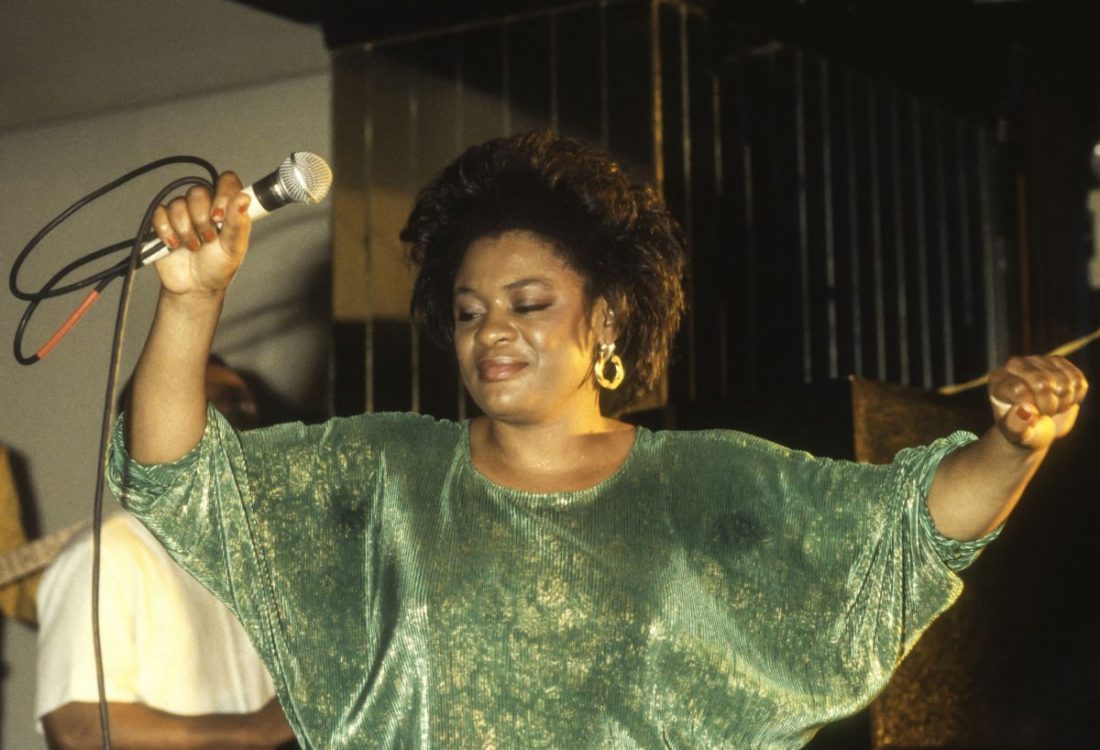The Rhumba legend who captivated young and old

Those born in the 80s or early 90s will most probably remember the sounds of Rhumba and soukous hits on their radios. These were hits that the majority of millennials grew up listening to and eventually loving.
There were a lot of Rhumba artists from Democratic Republic of Congo (DRC) but the late “Queen of Mutuashi” Tshala Muana, rose to become the best and favourite female artist of her time.
Born Elizabeth Tshala Muana Muidikay, but popularly known as Tshala Muana, she was born in 1958 in Lubumbashi to a soldier father who was later killed during the Congo war crisis while she was six years old.
She jump-started her career in music as a dancer in 1977 in the orchestra(group) of famous singer, Mpongo Love, before joining Les Tigresses d’Abeti Masikini, another female star who also mentored Mbilia Bel.
In 1978, with huge ambitions, a new musical venture saw her leave Congo for West Africa where she moved around several countries before settling down in Ivory Coast.
It is in Abidjan that an Ivorian artist noticed her versatile talent as singer, dancer and choreographer and included her to his band, a group that later enabled her record her first single in Paris in 1982.
And due to her sensational choreographies during her performances, it did not take long before her fame shoot up in Ivory Coast and beyond. One thing that stood out about her was that she wrote her own songs and never limited herself to Rhumba. She sang in Lingala or Soukous as her albums showed she gave prominence to songs in mutuashi rhythm, sang in her mother tongue, Tshiluba and later introduced salsa to her art.
Her creativity is what the majority of her fans and people she interacted with reminisce and will remember her for.
Provocative and sensual dance
Lynn Omolloh, a communication expert, says the creativity attracted her to Tshala’s music at a young age. She says Tshala started her career at a time when there were few female Congolese artists as the industry was male dominated and females were only confined to dancing.
“I was in secondary school when she started singing and I immediately fell in love with her and the music. It was like it was meant for women. The Mutuashi allowed us to dance and shake our bodies,” she says.
Omolloh describes Tshala as a classy woman who was able to be graceful, but also provocative and sensual in her dance, which was the opposite of other female rhumba artists.
Omolloh adds “She made me love long skirts with slits, which I still rock to-date. Her genre was about showing how it is good to be loved. She generally allowed African women to be themselves through music and dance.”
Her dreams and wishes of meeting her were, however, not realised as she missed an opportunity to attend one of her concerts in Nairobi as she could not afford it and when she could afford it, she never had the time to attend the concerts.
Radio personality Uncle Fred Machoka, terms Tshala as a close friend whom they first met in the 80s during her concert here in Kenya.
“I then met her in Paris, France in 1992 during a concert and we just had a conversation. She was an easy person who loved and appreciated her own music. She would just sing her songs to anyone who loved her and that stood out for me,” he says.
Machoka is well known for his Roga Roga programme where there was no day that Tshala’s music would be missing from his list.
Machoka says his last meeting with Tshala was during another Rhumba maestro’s burial, Simaro Lutumba in 2019.
“At that time, she was a government official and security officers were all over her. So it was hard for me to get to her. But she asked her bodyguards to bring me to her and she asked me whether I was in Congo for the burial or some other business,” he says.
He says Tshala was grateful that he could make a trip to her country to pay his last respect to a fellow artist.
Political loyalty
But Tshala’s music did not only touch the former generation—some of the young generation who grew up seeing the parents dance to her music rave to the hits.
Ibrahim Mwikamba, 25 years old says Dezo Dezo, Kalume and Karibu Yangu are some of Tshala’s songs that he stills listens despite his young generation and contrary to his age mate.
Mwikamba traces his love for Tshala to when he was young and his father would play Tshala’s music among other Rhumba songs.
Mwikamba notes his love for the Congolese music grew further during his high school and college life where they would re-arrange the music and perform during music festivals and one of the most favourite arranged song was Karibu Yangu.
Tshala’s music life was intertwined with politics.
In 1997 after the fall of Marshal Mobutu, Tshala became close to the country’s new strongman, Laurent Desire Kabila and became part of his politics, singing to praise the senior Kabila.
And after assassination of Kabila senior in 2001, her “patriotism saw her shift her allegiance to Joseph Kabila, the son of Laurent.
And that is why after the fall of Kabila junior and the entrance of the current president Felix Tshisekedi, she remained loyal to the former president.
Her loyalty against her Kasai-native-mate never sat well with Tshesekedi’s supporters who believe she ought to have supported Tshesekedi since they are from the same region.
And that is why in 2020, while Tshesekedi was working towards overthrowing Kabila from powers, Tshala Muana released a track “Ingratitude” criticising Tshesekedi’s move to “betray” Kabila.
In the song, the queen of Mutuashi was criticising an unnamed person who is ungrateful to his mentor. Even though names were not mentioned, it is believed she was referring to Kabila who helped Tshesekedi form a coalition that led to his government in 2019.
Machoka says that was the typical attitude of Tshala who stood for what she believed was right.
“I believe she wrote that song because she felt it was the right thing to do. When she decided to do something, no one would change her,” Machoka says.









